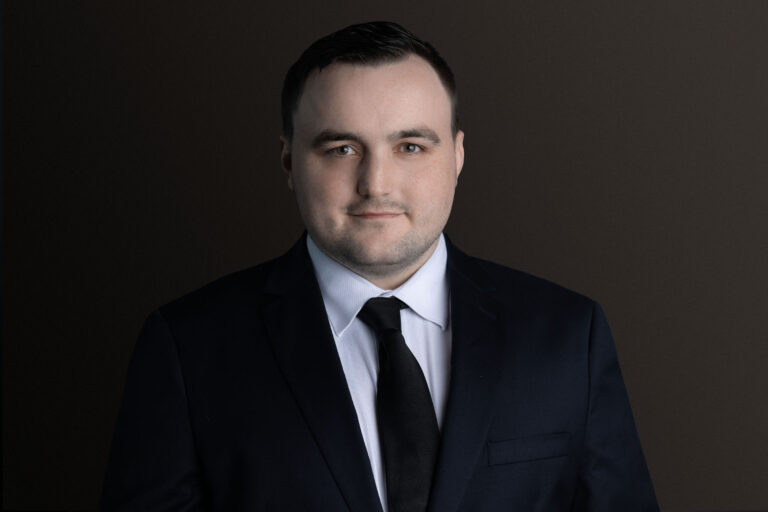Going through an estate or trust dispute?
Our lawyers specialise in all areas of estate and trust disputes & litigation.
Estate and Trust Disputes & Litigation Lawyers
From time to time, disputes might arise between the trustees of a trust, or between trustees and beneficiaries, or a will might be challenged or contested for a number of reasons.
Whether you’re looking to make a claim, or defend one, our estate lawyers can help walk you through the process, discuss options for resolving the estate or trust dispute, and give advice on the merits, risks, and possible outcomes of your claim.

Contesting or Defending a Will
A will is a document that records the final instructions of a person (the will-maker) regarding the distribution of their property and the care of any minor children after they die.
A will can be challenged or contested on various grounds such as invalidity, lack of testamentary capacity, undue influence, and inadequate provision for close family members.
Whether you are looking to contest a will or you are defending a will, it is important that you seek professional advice before making a decision on how to proceed. A dispute of this nature is usually complex and costly. Our experts can advise you on the grounds for challenging a will, whether the contest has merit or not, and how to proceed with the challenge or defence. We can also represent you in court or work with you during mediation or dispute resolution to resolve the matter favourably.
For more information, please see our article on contesting a will here.
Claims Against an Estate
An estate refers to all the assets and liabilities the will-maker had at the time of their death. This includes, but is not limited to, any land, investments, cash, and debts.
If you are looking to make a claim against an estate, our team can help you understand your rights and whether your claim against the estate is likely to succeed under the Family Protection Act 1955 or Law Reform (Testamentary Promises) Act 1949.
If you are defending an estate, we are here to advise you on the best course of action and can represent you in mediation or court hearings where necessary.
Estate Litigation
If you need to defend a claim against your estate, or you want to contest a will, we can help. Being experienced estate litigation lawyers, we understand how the laws around estates are written and how a judge would interpret the law.
This allows us to guide you through the process so that you get the best possible outcome, explaining to you all the risks and likely outcomes of the options available. Whether you are able to settle it through mediation or you need to battle it in court, we are here to help.
Family Trust Disputes
Situations may arise where a person wants to dispute a trust. Whether you are the one wanting to make the dispute claim, or you are the director of the trust, we can help.
Some common reasons for disputing a trust include:
- The person who made the trust did not have the mental capacity to do so
- The trust doesn’t represent its maker’s true intent because a third party exercised undue influence over them
- The trust was procured through fraud
- The trust is fraudulent or was forged
Disputing over family property is never easy. The topic is taboo, and the law can be complicated. We can be an advocate to alleviate the stress for you and your family and navigate the law to achieve an outcome that is sensitive and respectful to your particular situation.
Trustee Duties and Breach of Trust
A trustee is a person or organisation who is appointed as trustee of a trust and is responsible for retaining property on behalf of another person.
A trustee has certain duties under the Trust Act 2019 that they must adhere to. Some of those duties are mandatory, meaning they cannot be modified or excluded from the terms of the trust. However, there are default duties which can be modified and excluded from the terms of the trust. Determining if a trustee has breached the trust depends on:
- whether the trustee breached a mandatory duty or default duty; and
- what the terms of the trust are.
If a trustee is not acting in the best interest of beneficiaries or is violating the terms of the trust, can guide you through the process of making a breach of trust claim under the Trusts Act 2019.
If you are a trustee accused of breaching the trust, you will need to gather evidence to show your adherence to the terms of the trust and demonstrate that you did in fact act within your rights and duties.
Trust Variation and Termination
A trustee can vary a trust if they have specific powers to do so under the trust terms. However, if there is no clause in the trust that confers such powers, a trustee cannot make any variations unless all the beneficiaries unanimously consent to vary the terms of the trust. The correct procedure is set out in section 122 of the Trusts Act 2019.
Where all the beneficiaries of the trust unanimously consent to terminate the trust, a trustee must act accordingly and distribute the trust property.
In some cases, the court has the power to approve the variation or termination of the trust on behalf of a beneficiary or potential beneficiary.
If you as a beneficiary or trustee want to change or end a trust, we can provide advice on the legal implications of doing so, negotiate with the other parties involved, and represent you in court to seek approval.
If you are defending the terms of the trust from someone else making a claim, we can represent you in court to argue against the change or termination.
Disputes Over Trust Interpretation
A trust deed sets out who the settlors, trustees and beneficiaries are. It also describes the terms of the trust. If the trust is unclear, this can cause a dispute over the interpretation between the parties involved.
If there’s a dispute over the interpretation of a trust, we can provide legal advice, negotiate with the other parties, and represent you in court to argue for your interpretation.
Executor Misconduct
An executor is a person appointed as a personal representative of the will-maker to administer and distribute their estate in accordance with their will. In other words, an executor is responsible for carrying out the will-maker’s final wishes and has certain duties they must adhere to.
If an executor has breached any of their duties, you can apply to the court to have them discharged or removed as an executor if you have evidence to support your claim.
If you are an executor being accused of misconduct or breaching your duty, you will need to provide evidence to show you did in fact fulfil your duties properly.
Disputes Over Relationship Property
Relationship property refers to all property jointly owned by spouses or partners and usually include the family home and family chattels. If your spouse or partner has died or you are separating from them, there may be disputes over what constitutes relationship property or what your share of the property is.
If you are involved in a relationship property dispute, we can help you determine the properties that full under relationship property and what your share is.
Guardianship Disputes
A guardian is responsible for caring for and raising a child. The biological parents of a child are their natural guardians from birth, but a child can also have legal guardians who have the same responsibilities as a biological parent. A legal guardian can be a court-appointed guardian such as a child’s grandparent, a testamentary guardian named in a parent’s will, or the guardianship of the court (where the court is appointed as a child’s legal guardian).
Disputes can arise between guardians when they cannot agree on how to care for or raise a child. The first step will be to negotiate with other guardians or attend Family Dispute Resolution mediation. However, if the dispute is still not resolved, you can go to the Family Court to ask for a court order regarding the care of the child.
Power of Attorney Disputes
A power of attorney is a person (the attorney) who has been appointed to make decisions on behalf of another person (the donor). One or more persons may be appointed as a power of attorney.
Issues may arise between the attorneys, the donor and attorney, or the attorney and the donor’s family members in situations where the attorney is not acting in the best interests of the donor or there are disagreements about the decisions the attorney is making on behalf of the donor.
Retirement Village Disputes
Retirement village disputes can arise from issues related to contracts, fees, services, or accommodations. Certain disputes are dealt with under the Retirement Villages Act 2003 and the Retirement Villages (Disputes Panel) Regulations 2006.
If you require assistance with a retirement village dispute, whether you’re a resident, family member of a resident, or the retirement village management, we can help.
Why Evolution Lawyers?
A trust or estate dispute is often a complex matter and can be costly, especially if the wrong decision or action is made. It is important to receive the right legal advice on how to proceed with a dispute matter to ensure the best outcome is reached.
Our experts have a vast amount of experience dealing with estate and trust matters in New Zealand and a deep understanding of the laws and regulations that govern them.
We understand that each case is unique and tailor our approach to your specific needs, ensuring you get the solution your situation requires, rather than a generic, cookie-cutter approach that may not resolve the situation. This includes a clear strategy which we will explain to you in plain English as well as why we recommend this approach in your specific case.
Get Your Trust Or Estate Dispute Resolved Now
If you have questions about estates or trusts, or would like our assistance with an estate or trust dispute, please get in touch with our experts by clicking the button below:
Meet the Team












Our Client Testimonials
Posted onTrustindex verifies that the original source of the review is Google. Was really happy with the advice and end result. Regards WilliamPosted onTrustindex verifies that the original source of the review is Google. Had such an incredible experience with Thomas. The knowledge, professionalism, and humanity they brought to my situation was second to none. Very much recommend getting in touch!Posted onTrustindex verifies that the original source of the review is Google. We have engaged the services of Evolution Lawyers for writing up our Business Shareholders contract. This has been a very thorough process and we have felt supported in every way by their professional and friendly approach. We raised many questions and concerns, that were met with prompt and professional guidance. I would recommend this team for any Legal aid and requirements. Thimo Kok - Director of TK Contractors Ltd.Posted onTrustindex verifies that the original source of the review is Google. My experience with evolution lawyers was nothing short of amazing. They didn't know me from Adam i am actually from the USA. they handled my situation kindly graciously And generously. if you're fortunate enough for them to accept your particular situation, I would never hesitate their representation. Thank youPosted onTrustindex verifies that the original source of the review is Google. My experience with Evolution Lawyers, especially working alongside Tamina and her team, has been nothing short of exceptional. What sets them apart is their genuine commitment to incorporating kaupapa Māori values and principles into their legal practice, creating a supportive and culturally sensitive environment for their clients. From the outset, I was impressed by her deep respect for tikanga Māori and her willingness to integrate it into every aspect of my legal proceedings. Tamina and her team took the time to understand my cultural perspective and ensured that my voice was heard throughout the process. Their approach was not only legally sound but also culturally responsive, which made me feel valued and understood as a Māori client. Nga mihi nui e hoa, nga manaakitanga. SherylPosted onTrustindex verifies that the original source of the review is Google. Tamina from Evolution Lawyers deserves so much more than 5 stars! With the sensitive nature of the case that Tamina assisted with, we can't thank her enough. She was so professional and efficient in all aspects of the case. Her communication was excellent, and when she believes in you, she definitely fights in your corner! Highly recommend Tamina, and her team.Posted onTrustindex verifies that the original source of the review is Google. Professional and friendly service once again from Evolution Lawyers. We had an unfortunate family disagreement about our 3 party joint property ownership, with one party insisting on immediate sale and threatening court action via their lawyer. We shared a joint mortgage as well. Two of the three parties didn't want to sell with the market conditions being poor and a sale would have been at a big loss. After talking withThomas (Managing Director) and Favour (Solicitor), and expressing our worries about not wanting to sell our home, the joint mortgage, finances and the disagreement with the other party, and the stress we were feeling Thomas got out an old fashioned white board and came up with a plan. Then over the next two months Favour put that plan into action. It involved us collating years of financial information; working with our broker (who was contacted by Favour) to obtain a new home loan which was a feat in itself given that we are an older couple; communication with the other party's lawyer and working out and getting signed a Deed of Settlement before we could progress to the actual Title Transfer and agreement between the 3 parties to move the property from three owners to two. We are amazed at the way this complex situation was able to be resolved by the hard work (including a big rush pre-Christmas to get it sorted) and professional expertise of the team at Evolution Lawyers; Thomas, Favour, Georgia, and Sophie all assisted us on this occasion. Thank You.Posted onTrustindex verifies that the original source of the review is Google. We can't speak highly enough of Tamina and the Evolution Lawyers team. Purchasing a property is stressful and when you throw a few curveballs into the mix you need a slick team in your corner to navigate the obstacles and set a clear path. That's exactly what they did for us, minimising the pain, keeping us safe and communicating in language we could understand at every step. Thank you all from the bottom of our hearts. You all helped our little whanau dream come true with care and aroha. Kylie & Jo.Posted onTrustindex verifies that the original source of the review is Google. I have nothing but positive things to say about the service, care, and expertise of the team. Service delivery was fast and accurate and being in a different country didn't make a difference because the use of technology is in their DNA. The cost was super reasonable. I highly recommend the company.Load more